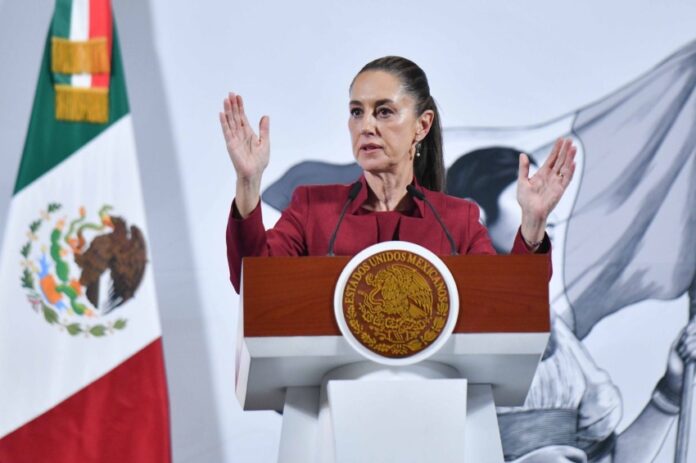President Claudia Sheinbaum held her Wednesday-morning press conference ahead of United States President Donald Trump’s scheduled “Liberation Day” announcement of “reciprocal tariffs” on Wednesday afternoon.
She once again said that her government will respond to all U.S. tariffs on Mexican goods on Thursday.
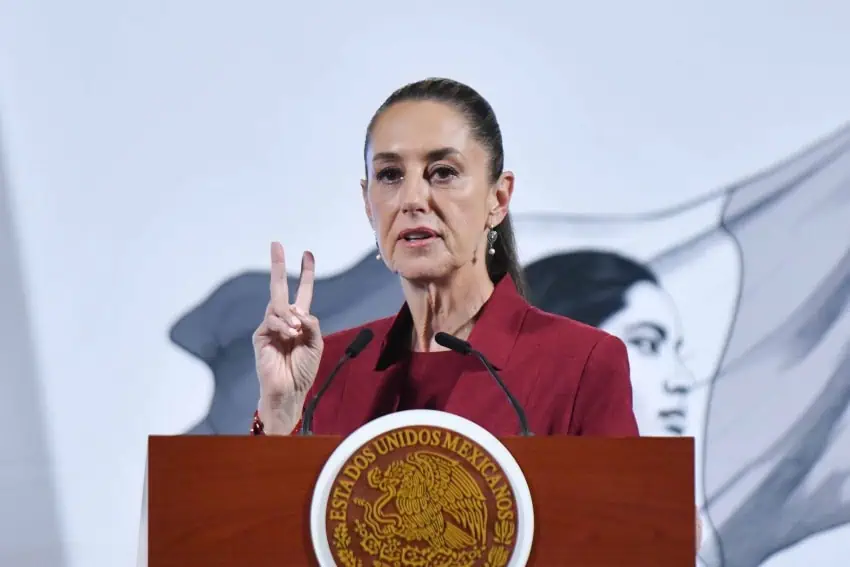
(U.S. duties on Mexican steel and aluminum, and goods not covered by the USMCA free trade pact have been in effect since March.)
Sheinbaum also spoke about Mexico’s vehicle importation “problem” and her call on Tuesday with new Canadian Prime Minister Mark Carney.
‘Our interest is the strengthening of the Mexican economy’
Some six hours before Trump’s scheduled announcement on “reciprocal tariffs,” a Brazilian reporter asked the Mexican president whether she could bring forward the announcement of Mexico’s response to the United States’ protectionism.
With a hearty laugh, Sheinbaum said she could not.
“What we’re going to announce is a comprehensive program, it’s not a matter of saying, ‘You’re putting tariffs on us, we’re putting tariffs on you,'” she said.
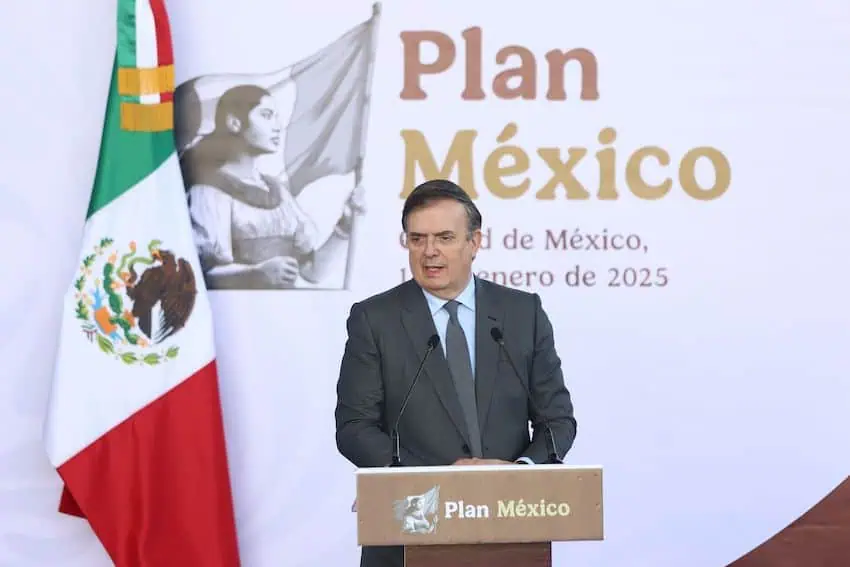
“Our interest is the strengthening of the Mexican economy,” including the automotive sector, Sheinbaum said.
“… The program we’re going to present tomorrow is not just related to the tariffs that the United States could impose,” she said before acknowledging that some Mexican goods already face tariffs when exported to the U.S.
“It’s a comprehensive program to strengthen the Mexican economy,” Sheinbaum said.
The federal government already has an ambitious economic initiative — Plan México — aimed at making Mexico the 10th largest economy in the world, reducing reliance on imports from China and other Asian countries and creating some 1.5 million new jobs.
Sheinbaum indicated that Plan México will be further strengthened by the measures she announces on Thursday.
‘The problem is we’re importing a lot of vehicles’
During her response to the question posed by the aforesaid reporter, Sheinbaum identified Mexico’s demand for foreign-made vehicles as a problem.
“The problem is that we’re importing a lot of vehicles, particularly from Asia, and this is not anything against any Asian country or anything like that,” she said.
“There are compact cars that are sold a lot in Mexico, [but] they’re not made in Mexico,” Sheinbaum said.
She said that her government is seeking to bolster domestic vehicle production so that the majority of vehicles purchased in Mexico are made in Mexico.
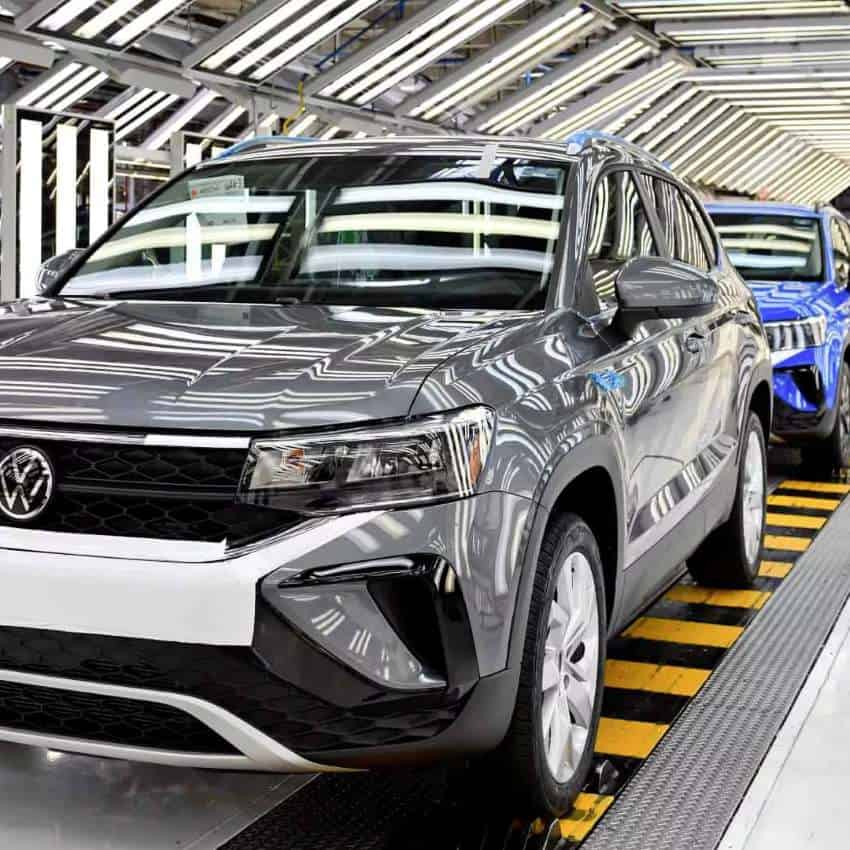
The United States is set to impose 25% tariffs on all cars made outside the country on Thursday, but U.S. content in vehicles assembled in Mexico will be exempt from the duty, lowering the effective tariff on vehicles made in Mexico.
The aim to decrease car imports by increasing domestic vehicle production takes into account “the new international situation we have, but is also part of Plan México,” Sheinbaum said.
Sales of Chinese cars, including electric vehicles such as those made by BYD, have increased significantly in recent years, although growth slowed last year. No Chinese automakers currently make cars in Mexico, although several have announced plans to do so.
Cars made by Japanese and Korean automakers are also popular in Mexico. At least some of those are made here by companies such as Toyota, Nissan and Kia.
Sheinbaum’s first call with new Canadian PM
Sheinbaum spoke to new Canadian Prime Minister Mark Carney for the first time on Tuesday.
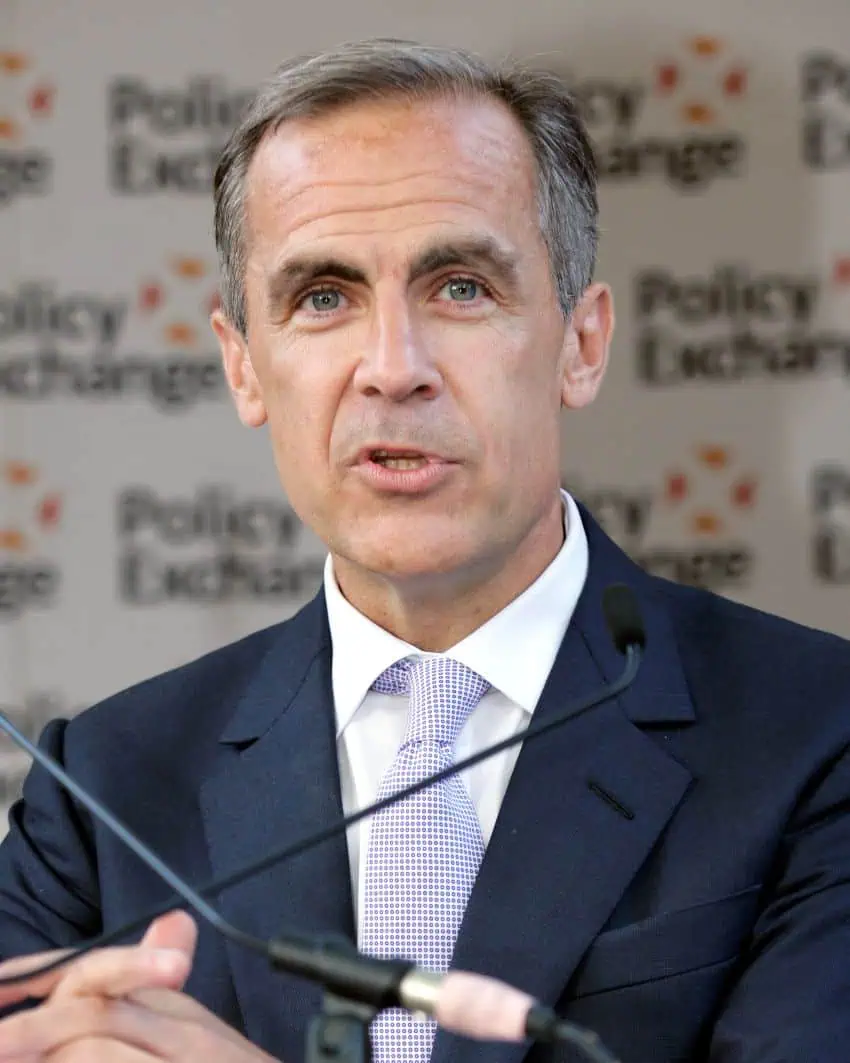
She told reporters on Wednesday that they discussed the importance of the USMCA free trade pact and the need to “always maintain the trade agreement between Canada and Mexico.”
Despite the USMCA, Trump has recently imposed tariffs on imports from both Mexico and Canada.
In a social media post on Tuesday, the federal government said that Sheinbaum and Carney “agreed to maintain dialogue and agreed on the importance of the economic integration of North America, with respect for our sovereignties, as the best way to compete with other regions of the world.”
Carney, who took over from Justin Trudeau as prime minister last month, noted on social media that he had spoken to Sheinbaum.
“In a shifting global economy, strong and reliable partners matter. Canada and Mexico are focused on deepening our trade relations and building stronger economies, together,” he wrote.
By Mexico News Daily chief staff writer Peter Davies (peter.davies@mexiconewsdaily.com)
